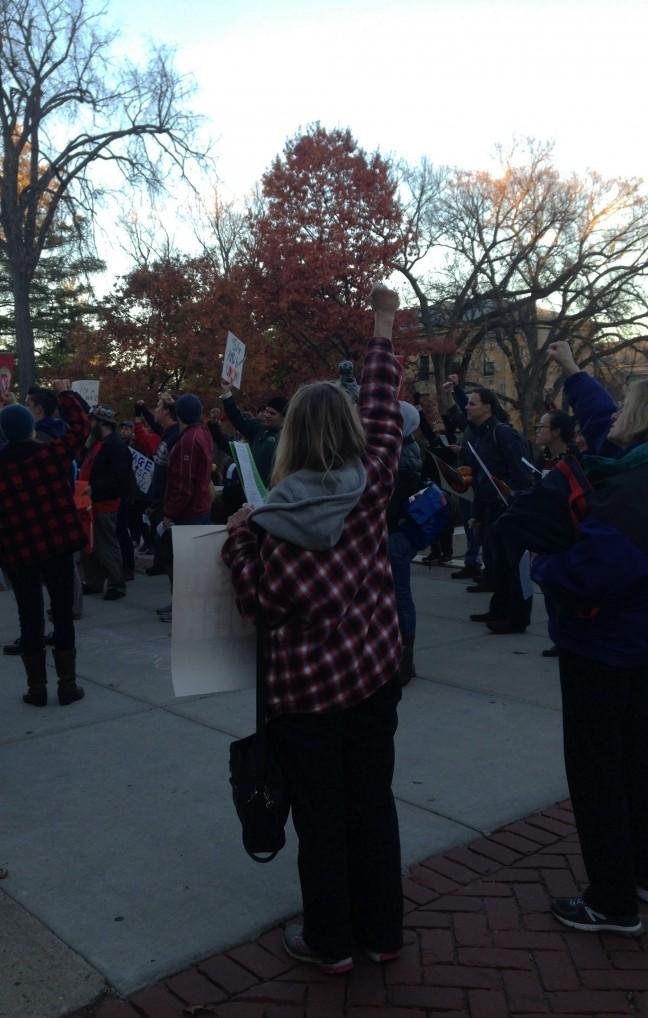University of Wisconsin administration and the Teaching Assistants’ Association are clashing over what living wage should mean for all university employees, as was shown when the TAA rallied last Wednesday over the issue.
UW administration remains firm in its belief that all employees should make a living wage, Darrell Bazzell, vice chancellor for Finance and Administration, said. But, he said currently the control of pay ranges for classified staff belongs to the state legislation and not the university administration.
“We believe that all employees should make a living wage and where we have discretion to make individual adjustments, we do so,” Bazzell said. “Over the course of last year we adjusted the compensation of 215 employees who were making less than living wage.”
The pay adjustments bring employees at or above the City of Madison living wage standard, $12.45 an hour, which is the standard used at UW, Bazzell said. He said these individual adjustments have come about because while the university cannot make across the board pay raises, they can, if they have the funding, make an individual adjustment for a high-performing employee.
UW hopes to receive approval from the state legislation for the Human Resources Design project, which would allow university administration to control the pay ranges for the classified staff starting July 1 of 2015, Bazzell said.
“Until such time that we get control of the pay ranges, which we hope to do by July, there is not much that we can do for other employees right now that are making a wage less than the living wage,” Bazzell said.
Classified staff are under the same system, controlled by the state legislation, as are all other non-university state employees. The Legislature controls the pay ranges and compensation for them.
The TAA recognizes that the UW administration is under certain kinds of constraints from the state, but would ask what exactly the university has done to prioritize living wages on campus, co-president of the TAA Eleni Schirmer said.
“The current HR Design project is often justified by the fact that it would enable the UW to provide wage increases to staff,” co-president of the TAA Michael Billeaux said. “But these workers have not seen raises for six years. What is unclear to us is what exactly the university has done in that time and before to prioritize living wages for all employees.”
The TAA believes the issue is not just the wage floor on campus, but that UW workers are being hurt across the board, Billeaux said.
“The rally was not only about the living wage, it was also about raising wages for all of the university employees who have not had a real wage increase for six years now,” Schirmer said. “Many of these people are technically making a living wage, but they have seen their wages deteriorate in real terms as the cost of living has increased.”
The TAA hopes that the Living Wage rally from last Wednesday will serve to make sure that the promised wage increase remains a priority for the administration, Schirmer said.


